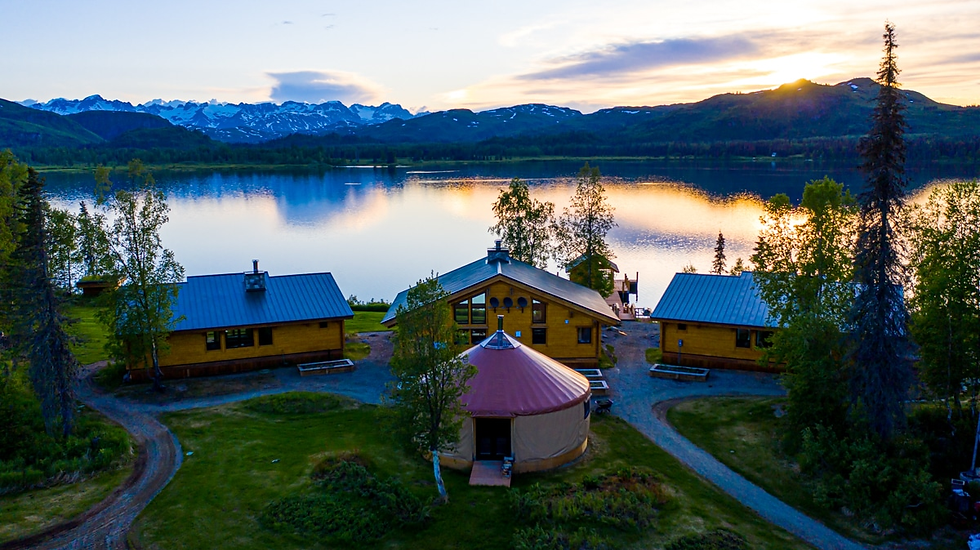The Transformative Role of Renewable Energy in Hotel Sustainability
- Fiona Zoe Montallana
- Nov 5, 2024
- 4 min read
The hospitality industry is playing a crucial role in the global movement toward sustainability, with a growing focus on renewable energy as a way to reduce its environmental footprint. Traditionally high energy consumers, hotels are now shifting towards green energy sources like solar, wind, geothermal, and hydroelectric power. This transition is creating a sustainable future for hotel operations, proving that luxury and environmental responsibility can indeed coexist.
This change is driven not only by environmental concerns but also by a new generation of eco-conscious travelers who prioritize sustainability in their accommodation choices. By embracing renewable energy, hotels are setting new standards for eco-friendly practices in the hospitality sector.
Harnessing Solar Energy: A Bright Path for Hotels

Solar energy has become one of the most accessible renewable sources for hotels, providing a means to significantly reduce carbon emissions and dependence on fossil fuels.
Vila Planinka (Slovenia)

Nestled in Slovenia's Zgornje Jezersko Valley, Vila Planinka showcases the seamless integration of solar energy into hotel operations. This boutique hotel runs almost entirely on renewable energy, with a substantial part of its electricity generated from solar panels. The design emphasizes sustainability, incorporating natural materials and energy-efficient technologies, allowing guests to enjoy luxury accommodations that actively protect the Alpine ecosystem.
F Zeen Kefalonia (Greece)

On the Ionian island of Kefalonia, F Zeen Kefalonia uses solar energy to meet much of its electricity needs. In addition to solar power, F Zeen has adopted sustainable materials, water conservation practices, and energy-efficient lighting. This approach allows the resort to offer luxurious amenities while maintaining a minimal carbon footprint.
Wind Power: Capturing Coastal and High-Elevation Breezes

For hotels near coasts or high altitudes, wind energy provides an excellent opportunity to generate clean power and reduce dependency on traditional energy grids.
Hapuku Lodge (New Zealand)

Situated in New Zealand's Kaikoura region, Hapuku Lodge takes advantage of the strong coastal winds to power its wind turbines. This eco-lodge also utilizes solar and geothermal energy, becoming a beacon of sustainable tourism. From their treehouse suites, guests can enjoy breathtaking views, knowing they are supporting a hotel that actively reduces its environmental impact.
Geothermal Energy: Tapping into Earth’s Natural Heat

In areas with high geothermal activity, hotels can use this sustainable energy source for both power and heating, minimizing carbon emissions effectively.
Ion Adventure Hotel (Iceland)

Iceland’s Ion Adventure Hotel, located near Thingvellir National Park, harnesses geothermal energy to power its operations, keeping its carbon footprint low. Guests can soak in geothermal hot springs and explore Iceland’s stunning landscapes, all while staying at a hotel that epitomizes environmental responsibility.
Southern Ocean Lodge (Australia)

Located on Kangaroo Island, Australia, Southern Ocean Lodge uses geothermal energy for heating, allowing the lodge to offer eco-luxury accommodations with minimal environmental impact. This integration of renewable energy into heating systems supports the lodge’s commitment to sustainability.
Hydropower: Utilizing Rivers and Waterfalls

Hydropower is one of the oldest renewable energy sources, converting the kinetic energy of flowing water into electricity. For hotels near rivers or waterfalls, small-scale hydropower systems are a practical solution.
Hotel Heritance Kandalama (Sri Lanka)

The iconic Hotel Heritance Kandalama in Sri Lanka, designed by renowned architect Geoffrey Bawa, integrates hydropower into its operations. The hotel’s reliance on this renewable energy source, coupled with its eco-conscious design, makes it a prime example of luxury that respects the environment.
Critabianca (Italy)

Critabianca, a boutique eco-hotel in Tuscany, Italy, uses hydropower alongside solar energy to minimize its environmental impact. Surrounded by olive groves and vineyards, the hotel offers guests an immersive eco-friendly experience, complete with organic, locally sourced meals.
Innovative Solutions for Energy Storage
One challenge of renewable energy is its intermittent nature—solar power is only available during daylight, and wind power depends on weather conditions. To address this, hotels are adopting advanced energy storage solutions, such as high-capacity batteries, to ensure consistent power availability.
The Rooster (Greece): Off-Grid Living with Solar Energy Storage

On the Greek island of Antiparos, The Rooster uses solar energy storage to maintain an off-grid, eco-friendly retreat. This approach allows the hotel to provide uninterrupted luxury accommodations that are powered solely by renewable energy, even on cloudy days or at night.
Beyond Energy: Waste Reduction and Water Conservation
While renewable energy is a central component of hotel sustainability, many eco-conscious hotels are also implementing waste reduction and water conservation strategies.
Tordrillo Mountain Lodge (Alaska): A Holistic Approach to Sustainability

In Alaska, Tordrillo Mountain Lodge combines renewable energy use with waste reduction and water conservation practices. The lodge sources food from local, sustainable farms, composts organic waste, and utilizes rainwater collection systems and low-flow fixtures, offering an immersive eco-friendly wilderness experience.
La Maison Hotel (France): Organic Gardens and Solar Power

La Maison Hotel in France combines sustainable farming with solar energy. Solar thermal systems heat the hotel’s water, while an organic garden supplies produce for the on-site restaurant, reducing its carbon footprint and reliance on imported food.
Redefining Luxury with Renewable Energy
As travelers become more eco-conscious, the demand for sustainable lodging continues to grow. By adopting renewable energy and embracing comprehensive sustainability practices, hotels are not only benefiting the environment but also attracting guests seeking responsible travel options. Through continued innovation in energy storage and resource conservation, the hospitality sector is well-positioned to lead the fight against climate change. Hotels powered by renewable energy provide a glimpse into a future where luxury and sustainability are harmonized, allowing guests to make an impact simply by choosing eco-friendly accommodations.



